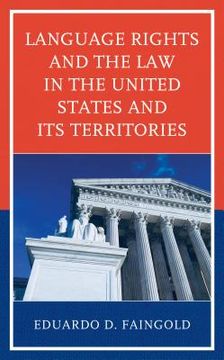Language Rights and the Law in the United States and Its Territories (in English)
Synopsis "Language Rights and the Law in the United States and Its Territories (in English)"
This book analyzes the language policies that result from the promulgation of linguistic rights in the constitutions and statutes of the United States and its territories. The United States is a nation in which speakers of minority languages were conquered or incorporated and the languages spoken by them were suppressed or neglected. Since the 1960's, the United States and its territories have seen a resurgence of claims for language recognition by minority groups representing a considerable population (Spanish in Puerto Rico and the Southwestern states, Chamorro in Guam, Chamorro and Carolinian in the Northern Mariana Islands, and Samoan in American Samoa). Also, the book studies recent developments regarding the status and use of English in the United States and some of its territories. For example, studying the effects of legal, social, educational, and political contexts on the Spanish language in the Southwestern states, and Pacific languages (Chamorro, Carolinian, and Samoan) in Guam, the Northern Mariana Islands, and American Samoa, reveals that English continues to be used as the main language of communication in all these places despite continuous efforts to protect the rights of indigenous languages by their native populations. For these reasons, it is important to compare the linguistic laws promulgated in the constitutions and statutes of the United States and its territories, or the lack thereof, as a response to the demands for linguistic rights by sectors of the population who do not speak English as a first language or who may seek to maintain the use of one or more indigenous languages. The book offers insights to those in charge of drafting legislation in the area of language rights. It shows how the United States and its territories could recognize and accommodate linguistic diversity.

